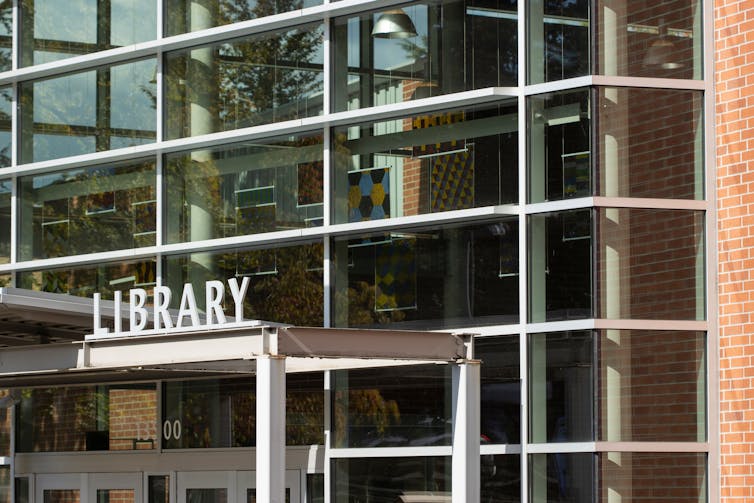Analysis: Program at Hamilton Public Library shows how libraries can expand the social services they provide

A new program at the Hamilton Public Library is making on-site social workers available to the public. (Hamilton Public Library), Author provided
BY Nicole Dalmer, Bridget Marsdin, Leora Sas van der Linden
December 13, 2023
When we need help or advice, it’s not always clear where to go, what resources are available to us, or who to turn to when we need support. Public libraries are often easily accessible and free to the public. That means the local public library is often the first port of call for people looking for help or advice.
This is changing how community members engage with their library and how staff engage with community members entering their doors. While libraries often act as an informational resource for folks looking to access community and social services, the public’s intensifying needs necessitate an expansion of the library’s role in our communities.
Staff at Hamilton Public Library’s (HPL) 23 branches and two bookmobiles increasingly encounter people with a range of complex health and social issues in their library spaces. They include individuals with housing and food insecurity, newcomers to Canada, those dealing with mental-health challenges, substance use and addiction, and individuals who struggle with technology, face language barriers, and income pressures, among other challenges.
Given these growing and varied needs, having social workers in libraries is vital. Library staff often do not have the knowledge or expertise to effectively offer crisis and mental-health support people need.
What’s happening at Hamilton Public Library
In November 2022, HPL responded to this challenge. In partnership with Hamilton Public Health Services’ Mental Health and Street Outreach Program, HPL developed a program to provide on-site social work services at its downtown central library, with two part-time social workers being present, visible and accessible on the first floor.
In partnership with Hamilton Public Health Services, HPL staff and social workers working at HPL voiced a need to document and study their social work program. The aim is to identify short- and long-term outcomes, engage with different library members to explore how the social work program is understood and to make these findings available to other public libraries who may be considering their own social work program.

With colleagues, I partnered with HPL and Hamilton Public Health Services to take a deeper look at the program from multiple stakeholders’ perspectives. Over the next year, interviews with different community stakeholders (library members, library workers, and social workers) will help make visible how these different stakeholders understand and use social work activities and services at HPL.
Social workers working in public libraries is a recent but growing partnership practice across North America. The first social worker in a public library was in San Francisco in 2009. In that case, library members experiencing homelessness were accessing the library to seek refuge and meet their basic needs.
Since this first program, there have been many variations of social services offered in public libraries across North America. Taken together, this is signalling a shift in how we think about and use public libraries — from book repositories to community anchors and social infrastructures.
Expanding the library’s role
Social workers in libraries take on multiple roles, including helping people access resources, offering supportive listening and brief counselling and providing training to library staff on how best to deal with crises when they arise.
Social workers also support access to services like housing, harm reduction, employment counselling and food security, and they provide crisis intervention and the de-escalation of disruptive behaviours on-site.

Library social workers aim to remove systemic barriers to make their services more accessible. They can do this by offering preventative support in their role as community collaborators and advocates, and by helping people access services that offer longer-term solutions to their problems.
Social workers in the library are also crucial; they are trained and able to support trauma, mental-health issues, challenges and complex needs in a way that meets the person where they are at emotionally, physically and/or cognitively.
Ultimately, this project at HPL will help ensure the social work program meets its intended outcomes and will inform decision-making about the program’s future design and sustainability. This work is especially important as HPL is piloting a second social work program at its Barton branch.
Sarah Gauthier, a Manager of Central Information Services with HPL, and Kianosh Keyvani, a Clinical Resource Co-ordinator with the City of Hamilton’s Mental Health and Street Outreach Program, co-authored this article.![]()
Nicole Dalmer, Assistant Professor in the Department of Health, Aging and Society, McMaster University; Bridget Marsdin, PhD student, School of Social Work, McMaster University, and Leora Sas van der Linden, Program Manager, Community Research Platform, McMaster University.
This article is republished from The Conversation under a Creative Commons license. Read the original article.


